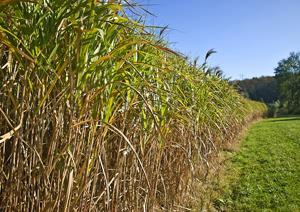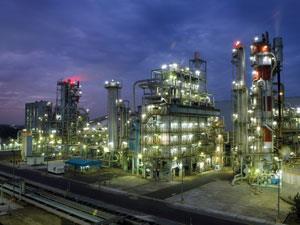Using nitrogen fertiliser on switchgrass boosts nitrous oxide emissions and negates biofuel climate advantage

The use of nitrogen fertiliser on biofuel crops such as switchgrass can generate a sharp increase in nitrous oxide emissions, thereby decreasing the climate benefits of such biofuels, according to research in the US. It appears, furthermore, that there is a non-linear relationship between nitrous oxide production and the amount of fertiliser used.
‘After a certain amount of fertiliser is added, there is proportionately a lot more nitrous oxide produced than what you might expect,’ says Leilei Ruan, a former graduate student at Michigan State University who led the study. This effect is caused by the growth of soil microbes that convert nitrogen fertiliser to nitrates and then to nitrous oxide, a greenhouse gas. Phil Robertson, the study’s principle investigator, estimated that over-fertilising a switchgrass crop can reduce its climate benefits up to 50%, once the fertiliser’s production, use and nitrous oxide emissions are accounted for.
Realising the full environmental potential of biofuels requires improved strategies for fertilising cellulosic crops, and the team suggests that these could include developing nitrogen use calculators to help farmers determine how much fertiliser to use. They recommend that future research in this area focus on identifying which soil microbes are responsible for the nitrous oxide increase in order to develop strategies that suppress them, or to design a plant capable of more efficient nitrogen use.
References
L Ruan et al, Environ. Res. Lett., 2016, DOI: 10.1088/1748-9326/11/6/064007











No comments yet